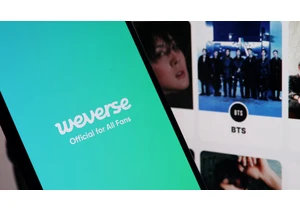Perplexity CEO Aravind Srinivas doesn’t mince words when it comes to Google.
Speaking on stage at Fast Company’s Most Innovative Companies gala in New York City Thursday night, Srinivas criticized the tech behemoth’s approach to AI-native search, specifically its decision to pull in AI for only some types of searches. “When somebody uses the search bar, they expect instant rendering of the 10 blue links,” he told Fast Company executive editor Amy Farley in front of the audience. “When that changes . . . and you’re not exactly sure what’s going to happen when you type in a query on Google anymore, it actually makes the product worse.”
Srinivas’ comments came shortly after Google announced that it would be integrating AI answers—called AI Overviews—into its search service. But, as Srinivas pointed out, the AI Overviews feature isn’t in fact all that new. Google was piloting the same initiative last year, under the name Search Generative Experience.
“I’m pretty sure next year they’ll call it another name,” Srinivas said. “That’s exactly how we had Hangouts and we had Meet and we had Chat and we had Allo, Duo, a bunch of messaging apps,” Srinivas said, listing off a number of rebranded or shuttered Google offerings. “When you don’t know exactly what you’re supposed to do, you keep changing it,” he said.
AI Overviews will be just one of many elements on display in an already crowded Google results page. “People don’t like it when it’s a cluttered UI [user interface],” Srinivas said. “When you go to someone’s house, you like it if it’s clean and well maintained, like everything is spick-and-span, versus like laundry baskets laying around, some clothes here and there, dishes not done,” he said. “That’s what it looks like when you have an SGE answer. There’s ads, there’s panels, there’s links, all sorts of things in one single UI; it’s pretty complicated.”

Srinivas says his company’s service is more predictable: “On Perplexity, you know exactly what’s gonna happen. You always know that you’re gonna get an answer. You always know that you’re gonna get sources.”
A small company like Perplexity has little chance of beating a monster like Google at its own game. But Srinivas stresses that the company isn’t building a traditional search engine, but rather an AI-native answer engine. Still, even in that arena, Google has some distinct advantages. It can use data from its vaunted web index or local business data from its Maps platform or factual data from its Knowledge Graph, to inform its AI answers. And it can draw upon its AI talent, computing power, and money to continually improve its AI search.
Srinivas has been saying for a while now that Google is deeply conflicted, from a business perspective, about giving direct AI answers to search queries, as Perplexity does. Google’s business model, after all, is placing ads among and around a ranked list of “blue links”—its traditional way of returning search results. If users can get the answer they’re looking for from the “overview,” there’s no reason to click the links, or the ads. That’s the main reason Google doesn’t show the AI Overviews for all kinds of searches, Srinivas says.
“I’m pretty sure that if you type something like ‘shoes’ or ‘handbags,’ you’re going to get the Shopping UI with hundreds of ads screaming at you to buy [their product],” he said. “So there’s no incentive to . . . give you an aggregated summary with exactly what people are saying about different shoes so you know exactly what you [should] buy.”
Srinivas, for his part, took the stage wearing a three-piece suit, red tie, and glossy black dress shoes. He had his own search tool to thank for the wardrobe. “I’ve never been to a gala before,” he said, “so before I packed my bags in San Francisco, I had to ask it.”
Inicia sesión para agregar comentarios
Otros mensajes en este grupo.

NASA has set its

Mayumi Kitakata frets about the health and well-being of Chi, her stoic housemate who enjoys treats, indulges a bit too much in the catnip, and about 14 is getting on in years for a feline.

Most of the tools we talk about tend to be things that make our own lives a little bit easier—often in some small but significant way.
Today’s tool takes a twist. It’s a free, o

Pop star Ariana Grande is joining Weverse, a superfan platform owned by

Last October, X began experimenting with various tiers of

After the U.S. Justice Department and the Federal Trade Commission reached an agreement to open

Pope Francis challenged leaders of the world’s wealthy democracies Friday to keep human dignity foremost in dev
